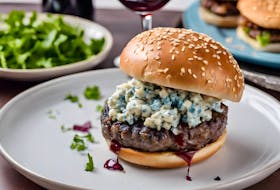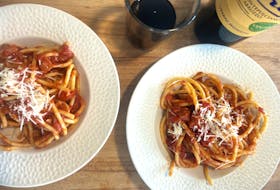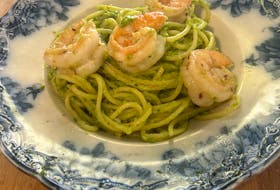In all its meatless glory, the veggie burger has earned the right to exist in the EU.
The European Parliament has voted to reject a farmer-backed plea to ban the use of words like burger, sausage and steak to market plant-based foods. However, terms such as “cheese-like” and “yogurt-style” weren’t so lucky, Reuters reports.
The potential for consumer confusion was at the root of the meat lobbyists’ argument. Copa-Cogeca, the trade organization for Europe’s farmers, had claimed that allowing the labelling of plant-based products as “vegan sausages” or “veggie burgers” would open a “Pandora’s box” of misleading language.
Copa-Cogeca launched a “ceci n’est pas un steak” (this is not a steak) campaign to underscore its argument. In a nod to René Magritte, it attempted to draw parallels between the surrealist painter’s “Treachery of Images” and what it calls a “cultural hijacking” of the meat industry.
“We are about to create a brave new world where marketing is disconnected from the real nature of products, which is just asking for things to spin out of control,” said Jean-Pierre Fleury, chairperson of the Copa-Cogeca working party on beef and veal.
As those on the other side of the argument pointed out, “veggie disc” doesn’t have the same appeal as “veggie burger.” Not to mention the fact that differentiating between a plant-based burger and a beef one comes down to common sense. Environmentalists, medical groups and plant-based food companies countered the meat lobbyists’ claims, saying a language ban could deter people from cutting back on meat, and ultimately derail the EU’s environmental and health targets.
“Consumers are in no way confused by a soy steak or chickpea-based sausage, so long as it is clearly labelled as vegetarian or vegan. Terms such as ‘burger’ or ‘steak’ on plant-based items simply make it much easier for consumers to know how to integrate these products within a meal,” Camille Perrin, senior food policy officer at the European Consumer Organization, said in a statement.
“There is no doubt Europeans need to shift to more plant-based diets, both for their health and the planet. The best would be for consumers to cook more with legumes such as beans and peas instead of meat, but not all have the time and skills to do so.”
On Friday, the European Parliament’s Committee on Agriculture and Rural Development announced that members of the European Parliament “rejected all proposals to reserve meat-related names for products containing meat. No change for plant-based products and names they currently use when being sold.”
After the votes were tallied, Swedish EU lawmaker Jytte Guteland said: “I’m going to celebrate with a vegan burger.”
The popularity of plant-based meat is growing.
This week, Impossible Foods followed up last month’s restaurant launch with the retail rollout of its Impossible Burger at nearly 600 Sobeys stores Canada-wide . During the pandemic, sales of products like Tofurky and Beyond Meat were up 264 per cent in the U.S. alone, Bloomberg reports. And in Europe, sales of meat and dairy alternatives have increased by roughly 10 per cent since 2010, according to research from ING Think.
In Canada, the U.S., and the EU, meat and farming lobbyists have repeatedly targeted the use of language in the marketing of plant-based products. Last year, the Canadian Food Inspection Agency (CFIA) ruled in favour of Vancouver-based vegan cheese maker Blue Heron Creamery after a labelling complaint sparked an investigation.
I'm going to celebrate with a vegan burger.
The CFIA said the company could continue using “plant-based cheese” to describe its products, as well as names for specific types of cheese, such as “cheddar-flavoured.” Blue Heron is far from alone in dealing with labelling-related woes: La Fauxmagerie in London, England, and California-based Miyoko’s Creamery have also had to defend their choice of words.
According to a European Court of Justice ruling in 2017, plant-based dairy alternatives cannot be sold in the EU using descriptors such as butter, cheese, milk and yogurt. Since 2013, EU regulations have restricted the use of these words to products made with animal milk — with some exceptions. Almond and coconut milk, ice cream and peanut butter are permitted.
In what Sentient Media called “a partial victory for common sense,” the European Parliament’s rejection of the so-called “veggie burger ban” came with a vote in favour of stricter constraints on dairy alternatives. The latter decision “tied the hands of plant-based dairy,” tweeted Good Food Institute Europe . “‘Oat milk’ is already banned — but this vote could forbid descriptive terms like ‘yogurt-style.’ EU Council must now clear up this mess and reject these unnecessary restrictions.”
Copyright Postmedia Network Inc., 2020








